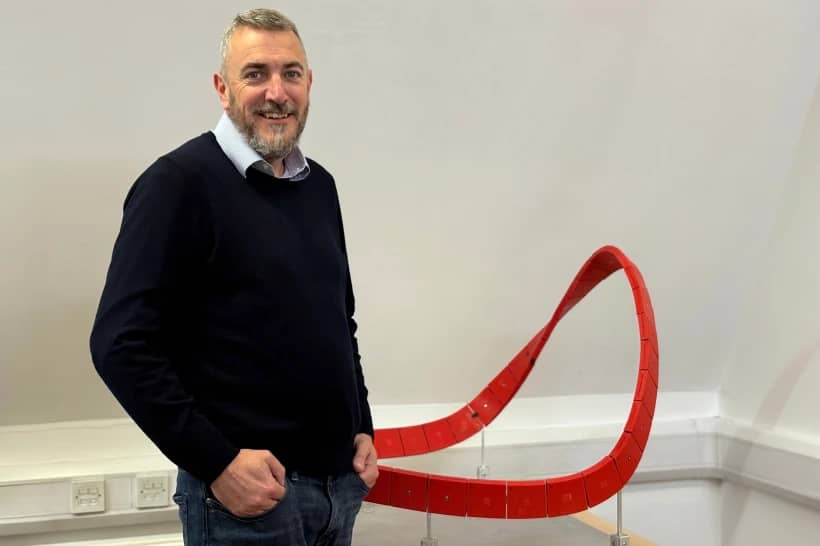MANCHESTER, United Kingdom — More than a thousand English Catholics are objecting to the proposed transfer to the United States of the relics of an American-born nun who is on the path to sainthood.
Mother Cornelia Connelly, the founder of the Society of the Holy Child Jesus, was born in Philadelphia in 1809 but died in St. Leonards-on-Sea, England, in 1879. She has been declared venerable, meaning her life has been recognized for heroic virtues.
The Society of the Holy Child Jesus wishes to open her tomb in a 14th-century chapel in Mayfield School, in St. Leonards, and remove some of her remains so they can be enshrined in the Cathedral Basilica of Ss. Peter and Paul in Philadelphia, possibly by the summer, in the hope of advancing her sainthood cause.
The British Ministry of Justice and the Vatican Congregation for Saints’ Causes have already approved the translation of the relics, according to reports in the UK media.
But 270 objections have been lodged with Catholic Historic Churches, a heritage organization, and Wealden District Council, the local authority, which must grant permission for alterations to be made to the chapel so that the relics can be retrieved. Objectors have until March 4 to make their cases against the opening of the tomb.
An online petition opposing the removal of the relics, arranged through the Change.org website, has also attracted almost 1,500 signatures.
Cesca Sims, organizer of the petition, says on its webpage that Mother Connelly’s remains should not be removed from the Mayfield chapel because it was her chosen resting place.
“This is the chapel she restored, in the school she created and the place she chose to be buried,” wrote Sims, a former student of Mayfield School, a Catholic boarding school for girls.
“Quite aside from the unnecessary exhumation and dividing of human remains, this work will be prohibitively expensive and will involve massive disruption to a medieval building and its surrounding grounds as the precise location of the remains is unknown,” she wrote.
“I, like many, many others, posted our private intercessions on tiny scraps of paper and placed them around Mother Connelly’s effigy,” she continued.
“I simply cannot see what is to be gained by this treating of a venerable woman like a commodity,” she said. “In an age when so many are struggling simply to survive, Cornelia herself perhaps would feel that the colossal amount of money and effort needed would be best spent elsewhere.”
According to The Tablet, a London-based Catholic weekly magazine, plans to transfer some of Mother Connelly’s relics to the U.S. followed meetings between two Philadelphia-area members of her order and now-retired Archbishop Charles J. Chaput of Philadelphia, to request his support in promoting her sainthood cause.
Eventually it was proposed that a place of veneration be established in her honor in the cathedral basilica in the hope that pilgrims would pray for, and obtain, the miracles sought for her beatification and canonization.
“We are saddened by any pain and upset this move causes,” said a statement from the Society of the Holy Child Jesus, quoted by The Tablet.
“The Society believes that by being in the cathedral, alongside St. Katharine Drexel, another Philadelphia founder, Cornelia’s life, legacy and our charism will have the potential to be recognized, seen and shared by a larger number of people, allowing a greater spotlight on her work and cause for canonization.”
A statement on the website of the Philadelphia basilica said the translation of the “sacred remains” would take place soon and they would be enshrined in a tomb “located in the rear of the basilica on the Race Street side.”
Born Cornelia Peacock, Mother Connelly was married with children before she and her husband, Pierce, an Episcopalian priest, left their church to become Catholics. She took a vow of perpetual chastity when her husband was ordained a Catholic priest, and she traveled to England with him when he went to serve as a chaplain to the earl of Shrewsbury, a Catholic.
There, church officials insisted that, to avoid scandal, the pair had no communication other than correspondence, and pressure was exerted upon Mother Connelly to leave the country. But she remained and, with the help of her husband, founded her order of nuns in 1847, becoming its first superior general. It is now active in 14 countries.
Mother Connelly was buried in the convent cemetery in Mayfield, but her remains were exhumed and placed in the chapel in 1935.















